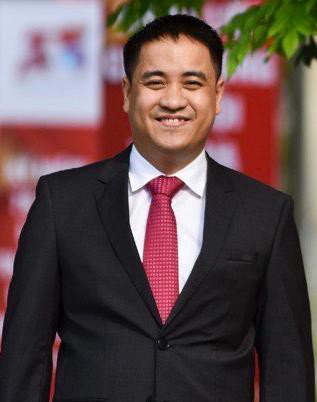(13th Congress) - Vietnam has assumed the role of the rotating Presidency of the United Nations Security Council (UNSC) for the second time in its 2020-2021 tenure this month, thus making a new and important imprint in the process of transforming from a participant to an active and proactive UN member.

Nguyen Hai Luu, Deputy Head of the Department of International Organizations under the Ministry of Foreign Affairs. (Photo: TPO)
According to Nguyen Hai Luu, Deputy Head of the Department of International Organizations under the Ministry of Foreign Affairs, in April, Vietnam has been carrying out some highlighted activities at the UNSC, including the online ministerial level meeting on overcoming the consequences of bombs and mines and maintaining sustainable peace by increasing links for more effective actions, chaired by Vietnamese Minister of Foreign Affairs Nguyen Thanh Son.
The activities also included the online high-ranking discussion on increasing cooperation between the UN and regional organizations in promoting trust and dialogue for preventing and addressing conflicts, chaired by State President Nguyen Xuan Phuc; and the open online discussion on protecting the essential foundation for the vitality of residents in armed conflict areas, chaired by leaders of the Ministry of Foreign Affairs.
“Vietnam will play the role of UNSC President in an active, proactive and responsible manner; objectively and transparently; to handle harmoniously and balance the concerns of countries on the issues discussed and promote cooperation and consensus at the UNSC,” he said.
Regarding Vietnam’s priority in its month as UNSC President, he said the topics that Vietnam proposed are interconnected in promoting sustainable peace at all stages and especially emphasizing the issue of dispute settlement by peaceful means, preventing conflicts.
Conflict prevention is early and remote prevention. “When conflicts arise, we care to protect the interests of people, vulnerable groups, and then care to protect essential infrastructure for people in armed conflict areas such as hospitals, schools and power generation plants,” he added. “After the end of the conflict, we are interested in solving the consequences such as overcoming the consequences of mines and bombs, stabilizing the lives of people and communities affected by explosives, to focus on sustainable development.”
Compiled by BTA